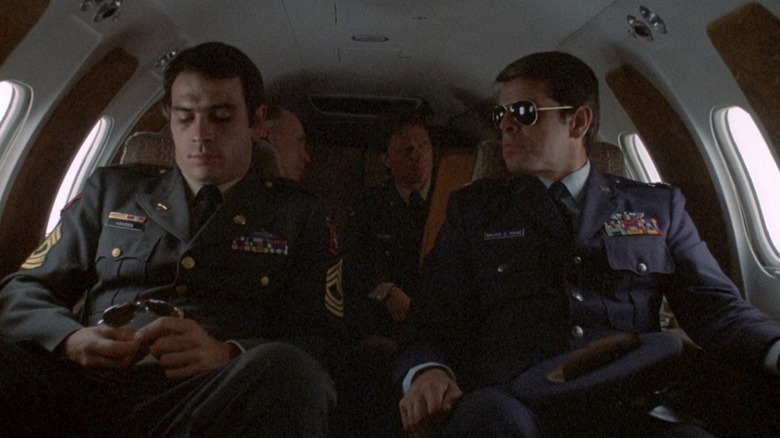Early in Quentin Tarantino’s career (i.e. after the watershed success of “Pulp Fiction”), the boundlessly energetic filmmaker basically embarked on a second career as a talk show guest. He’d turn up on shows even if he didn’t have anything to promote because he tended to be great television; ask him about any subject, and you’d get a candid, cocky response.
This was entertaining at first, if only as a throwback to the 1970s glory days of “The Tonight Show” when mega-celebs like Bob Hope, Burt Reynolds, and Carol Burnett would drop by to chop it up with Johnny Carson. But after a while, the novelty wore off, leaving Tarantino looking like an overexposed blowhard. As with Spike Lee in the early 1990s, his outsized public persona threatened to overwhelm his artistry. Hollywood didn’t turn on him, but a sense of exasperation began to set in around the 1997 release of his brilliant “Jackie Brown.” Tarantino’s relentless self-promotion clashed with that film’s relatively understated vibe (at least compared to “Reservoir Dogs,” “Pulp Fiction,” and “From Dusk till Dawn), and probably hurt the film’s Oscar chances (it only snagged a Best Supporting Actor nomination for Robert Forster).
Tarantino didn’t necessarily cut back on his press appearances, but he did learn how to target them more effectively. Even since “Inglourious Basterds,” he’s leaned into his stature as a cinema savant. He’s essentially the grindhouse Scorsese, a tireless defender of unfairly derided ’70s and ’80s B (or lower) flicks. His programming at Los Angeles’ New Beverly Cinema is an unpredictable assortment of fan favorites and ultra-obscure treasures. He’s also launched the Video Archives podcast with pal Roger Avary and sounded off on a number of vital movies via his essay collection “Cinema Speculation.”
Not enough? Now you can watch his 2023 Cannes master class online!
The 1970s exploitation movie that forever changed Tarantino
Though Quentin Tarantino didn’t have a new film ready for this year’s festival, he still managed to briefly steal the spotlight with a screening of John Flynn’s “Rolling Thunder,” which he followed-up with a 70-minute chat about the Paul Schrader-scripted film and several other topics.
Perhaps the most interesting aspect of the discussion, which has been uploaded to YouTube for your viewing pleasure, is how he compares Schrader’s displeasure with the finished movie to his own frustration with Oliver Stone’s version of “Natural Born Killers.” Though Tarantino adores Flynn’s take on the material, he’s read Schrader’s much darker screenplay and understands why the “Taxi Driver” writer would object to the film becoming a post-Vietnam revenge movie. Back in 1994, Tarantino traded barbs in the press with Stone over his tonal tinkering with what was initially intended as a “Badlands” homage. Tarantino has since made peace with Stone, but that can’t change the fact that his vision for “Natural Born Killers” never made it to the screen.
This conversation is especially intriguing now that we know Tarantino is going to recreate scenes from “Rolling Thunder” in his forthcoming (and potentially final) feature “The Movie Critic.” Did he drop any further hints about this project?
Tarantino stays fixed on the past
Alas, Quentin Tarantino remained mum on the film (which should begin shooting later this year), but don’t let that deter you from watching this video. The only bummer here is that Tarantino and the French-speaking moderator have to talk through an interpreter, which breaks up and shortens their back-and-forth. You’re definitely left wanting much more by the end of the master class.
Still, that’s a delightful change of pace from the Tarantino of the 1990s. Hopefully, his comments here will inspire more people to pick up “Cinema Speculation” and tumble down the movie-minded rabbit hole Tarantino’s been digging since he was a kid. In an era when even independent movies have a high-gloss digital sheen, these celluloid classics possess a serrated authenticity that we rarely get nowadays. They truly don’t make ’em like that anymore, and that’s a damn shame.

